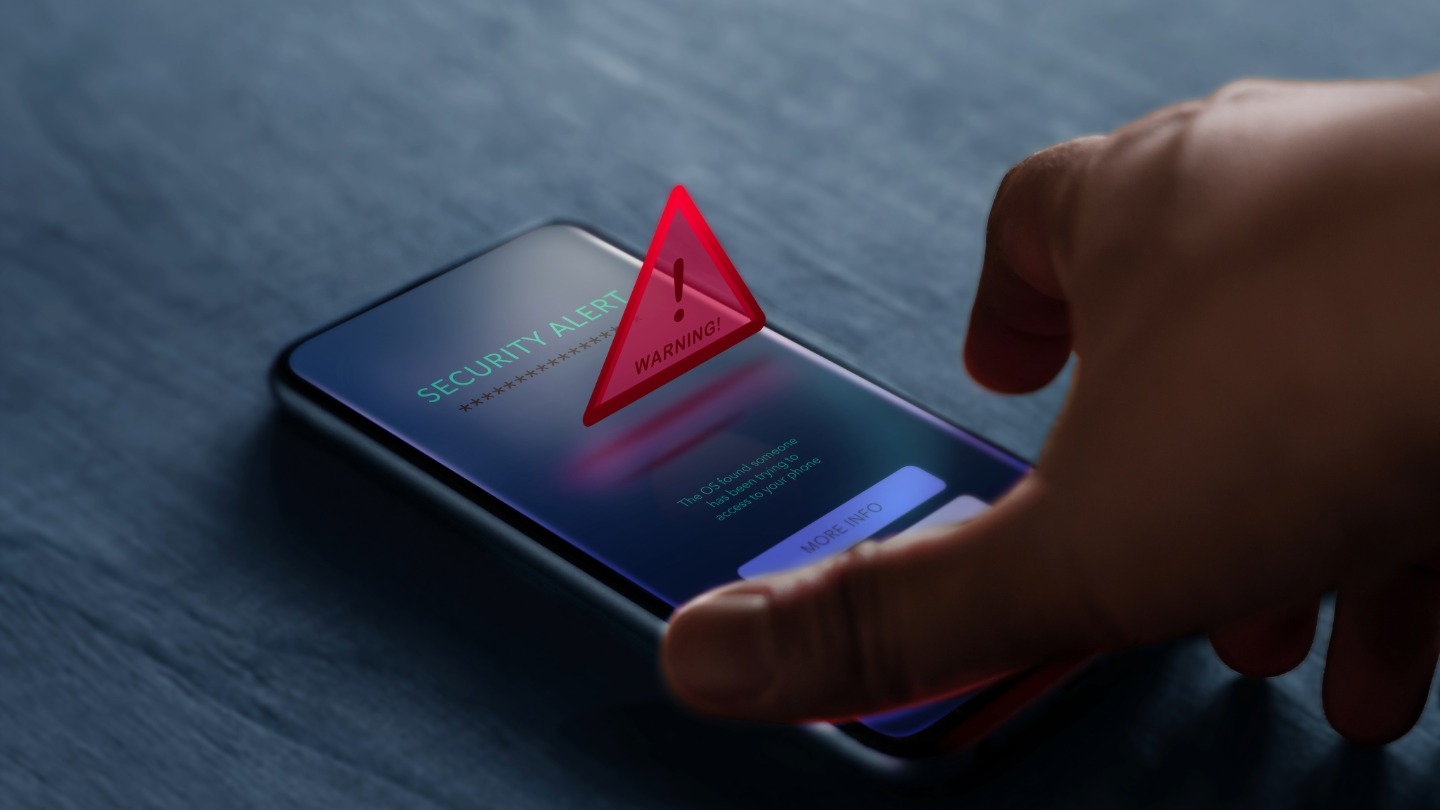
As people pack their bags for long-awaited summer fun, scammers also are preparing for vacation season – but their plan is stealing your personal and financial information. From fake toll road text messages to AI-powered phishing scams, today’s travel scams are more sophisticated, more personalized, and harder to detect than ever.
Whether you’re planning a quick weekend road trip or a long flight to a destination abroad, staying informed and monitoring your personal and financial data is the best way to protect your identity, your finances, and your peace of mind while on vacation. Here we break down the newest summer travel scams and how to help avoid them.
1. Fake Toll Road and DMV Text Scams Are Becoming More Common
One of the fastest-growing scams hitting travelers is the fake toll road text message. It usually comes via text and includes a link that takes you to a fraudulent payment site set up to steal your personal and credit card information. There has also been a huge rise in DMV text message scams, claiming the recipient has unpaid traffic tickets, fines, or other fees.
AI-Powered Tools Are Increasing Targeted Fraud
Criminals are using AI tools to make this and other phishing scams harder to detect. Scammers can use AI to analyze photos on social media to identify landmarks, extract and map data for places you’ve visited through geotagging, and mining the dates you posted, captions, comments, and hashtags to put together an itinerary of your trip.
This makes it easier for criminals to create believable text toll messages that look like they are coming from a place you just visited or traveled through. They know that people on road trips or driving a loaner vehicle in areas they are unfamiliar with are more susceptible to falling for this scam.
How to Avoid Toll Road Text Scams
- Never click on payment links from unknown or suspicious texts.
- Go to the official toll agency’s website directly or call them through an official phone number to see if you have any outstanding fees.
- Monitor your personal and financial information to catch unauthorized charges or other signs your information has been exposed.
2. Fake Vacation Rentals and Travel Booking Sites Are Still a Major Threat
Scammers are posting fake vacation rentals or copying real Airbnb, Vrbo, and other rental listings and reposting them as their own, usually discounting the cost to attract vacationers looking for a deal. They try to push you to communicate and pay outside the official site and instead pay through Venmo, Zelle, or wire transfer. Or, they have the posting listed on a fake third-party site.
Scam websites can mimic real well-known travel companies with slightly altered domains, such as Trave1ocity.com or Expedia-book.net. These fake sites can even come up in sponsored search results to make them look more legitimate, offering deals on flights and hotels.
Once you book and pay, the scammer has your personal and financial information and the listing or site disappears. When you get to your vacation destination, you have no reservation, no way to get a refund, and no one to contact for assistance.
How to Avoid Vacation Rental and Travel Booking Site Scams
Here are a few tips to help avoid these types of scams:
- Only book through trusted platforms with verified hosts.
- Don’t communicate or pay outside the platform.
- Double-check URLs for typos or misleading names.
- Book through the official websites of airlines and hotels when possible.
- Make sure the website is “https”, so the site is secure.
- If a deal seems too good to be true, it probably is.
- Actively monitor your personal and financial information for any unauthorized activity.
4. Fake “Free Trip” Scams
Scams promising a “free cruise” or “free trip” are back in force. The fake message stating you won a free vacation can come via email, text, or phone. Scammers say you’ve won a contest or promotion that you probably don’t remember even signing up to win. They’ll ask you to pay for a small “processing fees” or taxes upfront.
These scams often create a false sense of urgency by stating the offer is only available for a limited time and you need to act quickly. They also can use official-looking logos or fake travel agency names to make the scam seem more legitimate.
The fee trip doesn’t exist, and the scammers are after your credit card information and personal data.
How to Avoid Free Vacation Scams
Here are a few ways you can help avoid the free vacation scam:
- Don’t trust a “free prize” offer you didn’t enter and don’t provide any personal information.
- Research and verify any company that reaches out to you.
- Contact the company through its official website or phone number to verify.
- Be suspicious if an offer has a sense of urgency. This is a tactic used to make people act quickly and without thinking.
- Monitor your personal and financial accounts after receiving a suspicious call or email.
5. Spoofed Wi-Fi Networks that Aim to Steal Your Data
When on vacation, it’s common to use the Wi-Fi at an airport, hotel, café, or restaurant. Scammers know this and set up fake Wi-Fi hotspots with the goal of having you connect, so they can track what you are doing online. They can title the networks with names like “Free_Airport_WiFi” or “Hotel_Guest” to trick you into thinking it’s an official Wi-Fi network. When you connect, they can see everything you’re doing online.
They can access your email, see login credentials, and even your financial information through these spoofed networks. Scammers can also install malware without your knowledge.
How to Avoid Wi-Fi Scams While Traveling
Here are steps you can follow for safe Wi-Fi use while traveling:
- Ask staff for the official Wi-Fi name and password.
- Avoid logging into bank accounts and entering credentials and other sensitive information on public networks.
- Use a virtual private network (VPN) to encrypt your data.
- It’s important to monitor your personal and financial data, especially if you use public Wi-Fi.
Bottom Line
Modern travel scams aren’t random – they’ve become more and more personalized to target you and increase the likelihood you will fall for the scam. New AI tools are making it even easier use your information to tailor a scam to you. Whether it’s a fake toll text message, a spoofed website, or a scam based on your own social media posts, today’s criminals know how to make their scams believable.
Here’s a summary on how to protect yourself on your next trip:
- Don’t click on unexpected messages or links.
- Don’t post vacation updates until you're home. This includes live streams, unless they’re only to select family or friends.
- Use only trusted websites and apps when making your vacation plans.
- Be suspicious of offers that what you to act quickly.
- Ask for verified Wi-Fi networks and use a VPN whenever possible.
- Use an identity theft protection service to monitor your personal and financial information before, during, and after your trip.
By being aware and staying one step ahead of these new travel scams, you can focus on what really matters – enjoying your trip.
IdentityIQ identity theft protection services have been rated No. 1 with 24/7 monitoring, real-time alerts for possible suspicious activity, antivirus and VPN software, and up to $1 million in identity theft insurance, underwritten by AIG.
Whether you’re on vacation or planning your next one, IdentityIQ can give you peace of mind, so you can sit back, relax, and know your data is being protected. Get started today.







